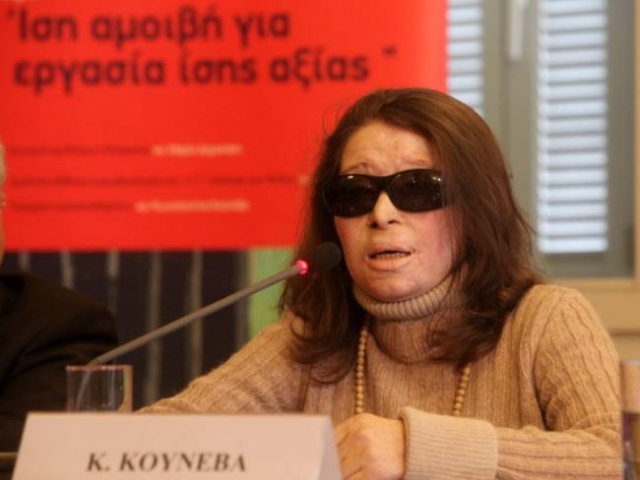Anastasia Balezdrova
The difficult part of the economic crisis that has erupted in Greece is yet to come. Nevertheless, it has also been able to affect a large part of society. According to experts, women are much more affected by the negative consequences of the crisis, since they bear a significant part of the burden of family responsibilities.
But what is its impact on immigrant women in Greece? Daniel Esdras, director of the Greek branch of the International Organization for Migration, provides the answer.
"Since the middle of the 1990s, more women have started to immigrate to Greece. When deciding on who is to emigrate, the choice usually falls on the man, who is the stronger one in the family and its support. But in Greece, we have seen the opposite over the last 20 years. The majority of immigrants have been women and their number has increased rapidly - 50 times."
According to him, the main reason for this was the prevailing economic situation in Greece. "At first, women from the Philippines were arriving. Alleged nurses, many of whom quickly became housemaids. Then, the political changes in Eastern Europe came, which were followed by a great wave of immigrant women to Greece."
This was the time when a boom was registered in trafficking of women, many of whom were involved in the sex industry against their will. "Due to the lack of documents, the majority of the women were subjected to sexual and other type of harassment; they were forced to not go out and their human rights in general were violated." He gave the example of Kostadinka Kuneva, who was attacked and splashed with acid, because of her union activity.

The change, which has led to the legalization of these women, was followed by the crisis in Greece, which has pushed things back. "To retain their jobs, they are forced to accept a reduction in wages and an increase in working hours, i.e. to accept the negative conditions, which were typical in the past."
Daniel Esdras’ advice to immigrant women is to not separate and distinguish themselves from their Greek colleagues, because together, they could better protect their rights at work.
According to data, women anyway manage much better than men do precisely because they are more adaptable to economic changes and their negative effects.
"So far, we have sent at their request 10,000 immigrants to their countries, only 800 of them being women. Half of them were in Greece with their husbands and the other 400 were alone. This shows that women manage better."
To confirm his words, he points out that the immigrants, who request repatriation with the help of the International Organization for Migration, are people who have been left with no job, living on the streets and who have lost all hope that they can cope with the situation. He specifies that the majority of immigrants, who are living and working in Greece alone and sending money to their families in their countries, have come mostly from Eastern Europe, Southeast Asia and Africa.
Daniel Esdras presented the data at a conference on "Women and the economic crisis" organized by the General Secretariat for Gender Equality.
Rachel Paul, Senior Advisor, Equality and Anti-discrimination Ombudsman, Norway, stated that violence against women was one of the main obstacles to economic development.
"Domestic violence is the most common form. Poverty and unemployment caused by the crisis are factors that intensify it. 80% of the population in 10 European countries believe that unemployment is undoubtedly the cause of violence," she said.
Women are often subjected to sexual and psychological violence, especially as victims of trafficking and prostitution. As a result of the violence, women end up with physical injuries, mental, sexual and reproductive problems. Under these conditions, the objective of full gender equality remains a utopia.
In times of crisis, figures are of particular importance. According to statistics, the social and economic consequences of violence against women in Europe amount to 16 billion euro.
The conference discussed the proposals for increasing employment among women. Representatives of women's associations state that when women are united they can achieve better results.